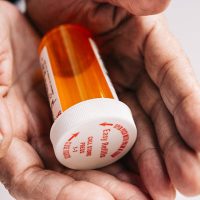Liability When Doctors Prescribe Addictive Medicines

Imagine that you get sick or injured, and you’re prescribed a medication. But the medication you’re prescribed is highly addictive, and sure enough, in time, you find yourself hooked; you’re addicted to the medicine the doctor prescribed to you. Is the doctor liable for your addiction?
Whose Fault is It?
It is no secret that many of the medicines that we take, and which are legal with a prescription, are also highly addictive. But by the same token, many of those medicines work, and have legitimate medical uses.
We tend to think of addiction as the user’s fault; that is, it’s on you, as the one who took the medicine, to avoid getting addicted. While we all bear some responsibility for avoiding addiction, so, too do the medical professionals who prescribe addictive medicines.
The Doctor’s Responsibilities
Doctors have to take special care in prescribing addictive medicines. One of the first things doctors should do is know their own patient; specifically, they should know whether the patient is prone to addiction, or has addictive behaviors in his or her history.
If so, that doesn’t mean that addictive medicines can never be prescribed. It just means that the doctor may need to use those medicines as an avenue of last resort, and when and if they are prescribed, the doctor should ensure that only a limited dose is prescribed at any one time.
Once prescribed, a doctor who prescribes an addictive medicine needs to keep close tabs on the patient. Refills should not be granted until the patient is seen or at least, without consulting the patient.
Doctors are trained to spot signs of addiction, and they should use that training.
So, for example, if a prescribed dose is being used faster than it should, or the patient is asking or refills sooner than he or she should, that should be a warning sign. Certain behaviors of the patient’s affect or personality may change, when addiction sets in, something else that a medical provider should look for.
Tolerance Sets In
Doctors should also monitor tolerance levels. Developing a tolerance to a medicine may mean that the patient is taking more medicine than he or she should be taking. In some cases, the tolerance causes the addiction; trying to make the drug more effective, the patient self-doses, taking more and more.
Suing for Addiction
You can sue a doctor for prescribing an addictive medicine, and for getting you addicted. But as you may imagine, in many cases, it’s the patient who takes more medicine than he or she should, without the doctor’s knowledge or permission, and many jurors will blame the patient.
Still, doctors should know better than to just hand out addictive medicines to people-especially those prone to addiction. When they do not, the person developing the addiction should see an attorney about possible malpractice claims related to severe addiction.
Contact our Rhode Island medical malpractice lawyers at Robert E. Craven & Associates at 401-453-2700 for help if you have been injured by something a doctor did or didn’t do.
Source:
superlawyers.com/resources/medical-malpractice/can-you-sue-doctors-for-medication-addiction/

